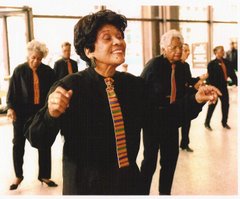
LoJack for People Posted Wednesday, February 11, 2009 9:28 AM | By William Saletan
The companies that brought you tracking devices for stolen cars and lost animals have found a new market: tracking human beings.
Radio tracking devices, as Philip Shishkin notes in the Wall Street Journal, were initially placed on endangered animals. More recently, LoJack has installed them in more than 7 million vehicles to foil theft. Some 2,000 to 3,000 police departments have receivers to pick up signals from the devices. Why not extend that network to track people?
In fact, two companies have already put radio monitors on 18,000 people with Alzheimer's or brain injuries. Now LoJack is joining the market in a big way. Yesterday, the company announced a "diversification strategy" to "track and rescue people at risk of wandering, including those with Alzheimer's, autism, Down syndrome and dementia."
The Alzheimer's market looks pretty lucrative. LoJack anticipates up to 16 million Alzheimer's patients by 2050, most of whom wander away at some point. But the company also notes that "autism, which is the fastest growing developmental disability that now afflicts one in every 150 babies born, can also cause children to wander." In fact, LoJack aims to address the whole range of potential wanderers. According to CEO Ronald Waters, "This offering is a natural extension of LoJack's family of products and services and takes our solutions beyond ‘getting the bad guys' off the streets to now protecting those afflicted with cognitive disorders."
Who's going to have the receivers to track all these people? "Law enforcement/public safety agencies," says Lojack. And who's going to buy the devices and put them on the people who will wear them? You can't expect a cognitively disordered person to take that kind of initiative herself. As an Illinois sheriff points out to Shishkin, "The people who need the technology are often too embarrassed to ask for it."
There's no question that these devices save lives. Without them, some people will wander off, get lost, and die. And if your family can't track you, they might resort to keeping you indoors so you don't wander. But "cognitive disorders" can also become an expanding rationale for putting more and more people under constant police surveillance. In the spirit of mutual tracking, let's keep an eye on it.











.jpg)
No comments:
Post a Comment